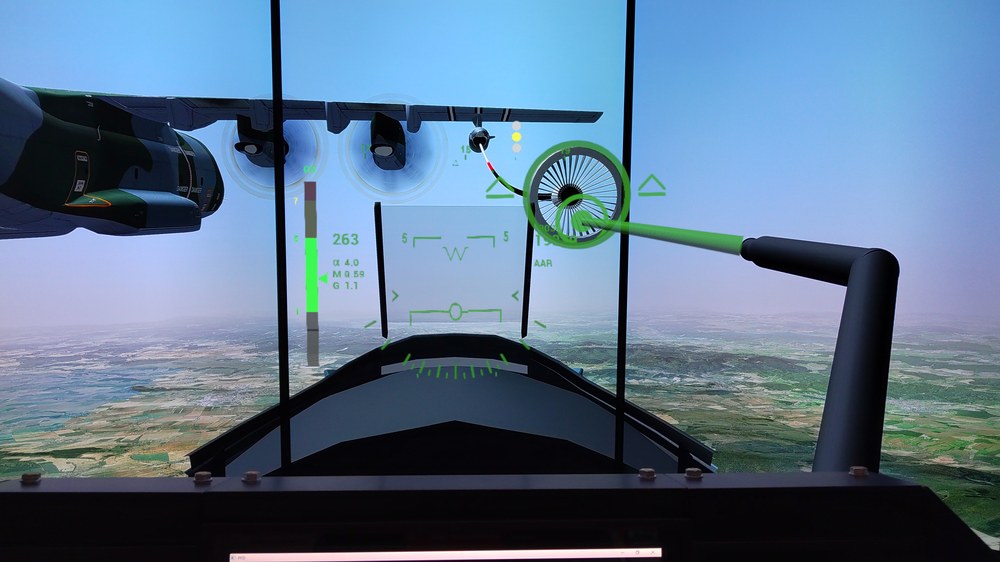Human-Machine Interaction

Human-Machine Interaction Group
The Human-Machine Interaction (HMI) Group develops and investigates innovative technical solutions to support the users of military aircraft as part of military research in cooperation with the Bundeswehr. In this context workplaces in the cockpit, at ground control stations and in the cargo hold are analysed and optimized. The expertise is also used for analysis and evaluation in current military projects of the Bundeswehr.
The interdisciplinary expertise of the Human-Machine Interaction group includes mechanical engineering, aerospace engineering and human factors engineering. This combination allows for a comprehensive understanding of user requirements and systems.
Military research
Key topics of military research concern the conduction of military missions including those in teams with unmanned aerial vehicles and the involvement of interconnected units. The research projects of the HMI group are focused on the development, implementation and evaluation of innovative concepts for fighter aircraft cockpits, ground control stations and other workplaces like the cargo hold as well as assistance systems for demanding flight manoeuvres. For example, human factors design principles are applied to improve situational awareness displays or ergonomic issues are investigated and optimized through the use of innovative input devices. This also encompasses the examination of workplaces for individuals with specialized roles, such as the loadmaster in military transport aircraft.
For evaluation purposes, simulators are built and utilized to provide a simulation environment that is as realistically as possible. Technologies from the fields of augmented, virtual and mixed reality (AR, VR, MR) are examined with respect to their use in the cockpit. Throughout the development process – from requirements gathering through expert interviews, obtaining user feedback, human-in-the-loop studies in the simulator – pilots, weapon systems officers, drone operators and loadmasters of the Bundeswehr are involved. Established methods and tools from the empirical science of human factors engineering are used and evaluated in conjunction with relevant technical and operational data.
Analysis and evaluation
In addition to the development of new concepts within research projects, analysing and evaluating existing systems as part of expert consulting services also play a central role in the Human-Machine Interaction Group. This is necessary to ensure that the aviation equipment of the Bundeswehr meets the required high standards and requirements. The Human-Machine Interaction Group supports the Bundeswehr in current military technology projects with its technical expertise, particularly in the areas of certification, qualification and testing of aircraft and ground control stations. In contrast to research activities, analysis and evaluation focuses on the assessment of existing systems and systems under development. In the field of certification, it is checked that the aircraft complies with current flight safety standards (without executing sovereign tasks) while in the field of qualification it is checked whether the contractually agreed performance requirements are met. In early project phases requirements are reviewed and feedback is provided on design proposals from industry. In more advanced projects, subsequent modifications carried out by the industry are analysed and evaluated on behalf of the Bundeswehr. This work is mainly conducted within international working groups and committees.
